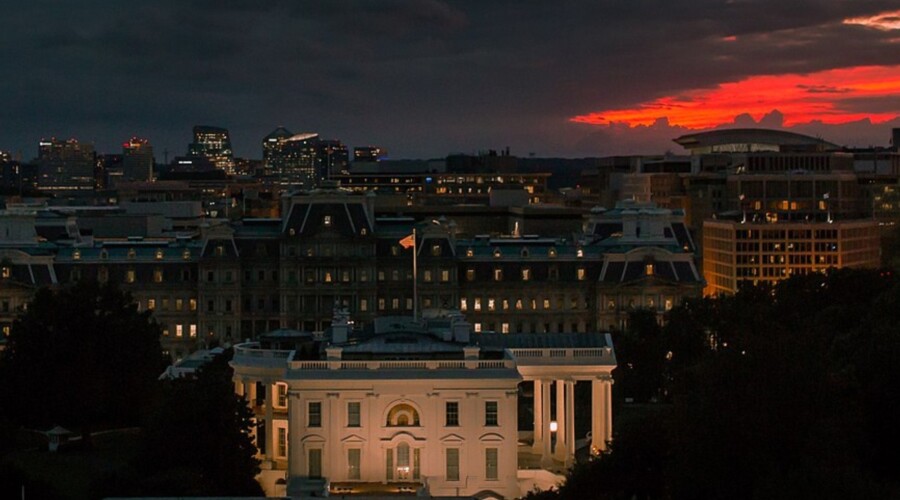As world leaders meet in New York City for the annual United Nations General Assembly, responsible internationalism—the very idea upon which the UN was founded—faces a moment of crisis. Secretary-General António Guterres stressed this idea in his opening remarks, saying, "We are gridlocked in colossal global dysfunction."
Serial failures of the international response to the Russia-Ukraine war, climate change crisis, energy and food security challenges, and the pandemic prove that the prospects for cooperation are languishing. Just now when these global-scale challenges are being felt at kitchen tables everywhere, international institutions are failing to deliver. Into this void rides a wave of opportunists.
Today, two distinct visions have risen in opposition to responsible internationalism—each vying to shape and dominate the future of world politics. These visions have come to life through powerful leaders inspired by grievances and animated by new opportunities that prey on some of humanity's worst instincts.
The first and most audacious vision is ethnonationalism, which is perhaps "best" embodied and expressed by Viktor Orbán, Hungary's autocratic leader. Orbán has made it clear what he wants the world to look like: blood and soil allegiances, closed borders, strongman politics, and the use of state power to promote traditional values on family and sexuality.
In the past year, Orbán amplified his self-described "illiberal" agenda and looked to outsource his model to other countries. While continuing to curtail the independence of Hungary's media, universities, and judiciary, he denounced "a mixed-race" world and used his speeches to hammer away at migrants and gay marriage. In his appearance at the CPAC conference in Austin Texas, he proclaimed his defense of Christian values as a direct contrast to free thinking, openness, and pluralism.
In Orbán's world, globalists are the enemy. Business, finance, media, and universities are controlled by outside forces—often a trigger for conspiracy theories and a trope for anti-Semitism. This outlook leaves little, if any, scope for international cooperation. The nationalists' culture war is a total war, a zero-sum game where alleged, distant enemies collude to exploit the nation and its people.
A second vision in staunch opposition to responsible internationalism is the libertarian, decentralized view as expressed by an ascending group of Western oligarchs exemplified by Elon Musk and Peter Thiel. The full flowering of digital technology confers enormous power to its investors and leaders, shaping the media landscape, economic opportunities, and, increasingly, our political and social lives.
These new oligarchs enjoy social stature and command the attention of a broad public—many enjoy celebrity status. Their agenda features less regulation and a skepticism of institutions. As a matter of conviction, they champion innovations in crypto-currency, life extension, and space travel. What do these ideas have in common? Each depends on heroic individualism leveraged by the virtues of risk and disruption.
If the oligarch vision is realized, states will become less relevant in favor of the rule and influence of the biggest companies that transcend boundaries. There seems to be little or no moral imperative to address urgent issues of inequality in their world view, not to mention the need for solidarity around the common challenges facing humanity. In the world of the oligarchs, super-empowered individuals will do well, the rest will be at their mercy.
At this incredibly fragile moment in global politics, we need to put forth a third vision—one that clearly counters the ethnonationalist and oligarch threat and allows us to rally together to meet the existential issues of our time.
The world awaits a compelling new manifesto for responsible internationalism to highlight the moral imperative for international cooperation. Its absence until now is a bit of a mystery, perhaps best explained by the fractured and polarized political environment, aided and abetted by disengaged and disenfranchised publics who feel powerless to force change.
I suggest that such a manifesto might begin with a single proposition: Self-interests are always bound to the interests of others.
To this point it is worth noting that Adam Smith began his book Theory of Moral Sentiments with a first chapter titled "On Sympathy." His subsequent work in economics hinged on the proposition that no person or nation can flourish without taking into account the needs and interests of others.
The indivisibility of interests defines our lives and yet paradoxically, this fact remains nearly invisible. Sadly, global collateral damage from Ukraine may reveal this truth sooner rather than later: Food shortages in Africa and the Middle East, energy shortages in Europe and North America, and a nuclear crisis in Zaporizhzhia are real-time evidence.
More examples of indivisible interests are well-known to the point of cliché—the potential overshoot of the climate goal of limiting warming to under 1.5 degrees Celsius being the most obvious. Is lack of progress due to indifference, exhaustion, or lack of vision and leadership? The answer is likely a bit of all three.
It's been said that there are two types of statespeople: architects and bricklayers. Without a new generation of both to design and build an exciting new era for internationalism, we risk drifting into the visions of the autocrats and the oligarchs, content as they are to enjoy their privileges without wider responsibilities.
Joel H. Rosenthal is president of Carnegie Council for Ethics in International Affairs.




